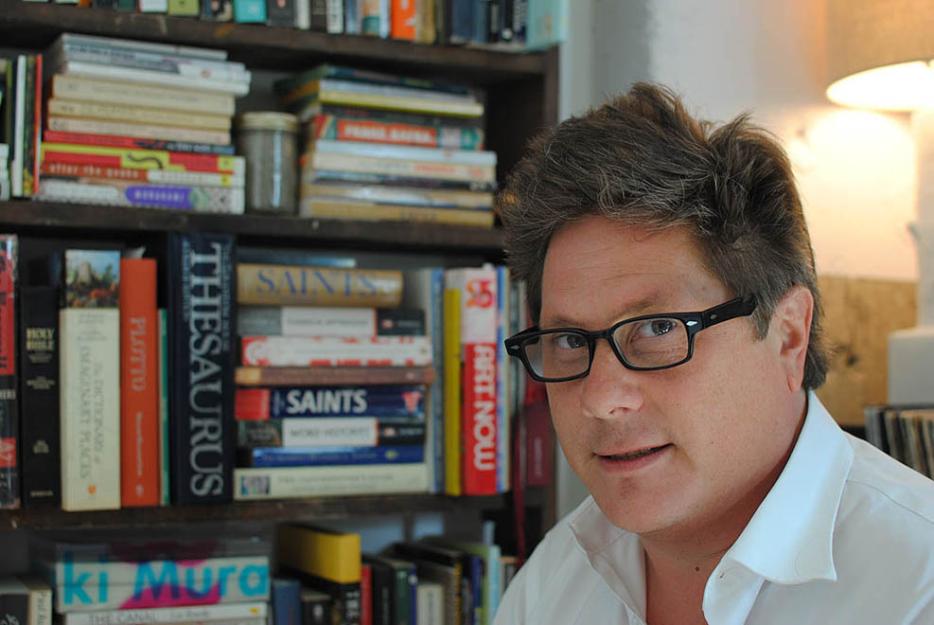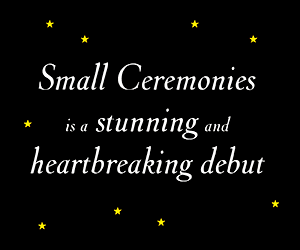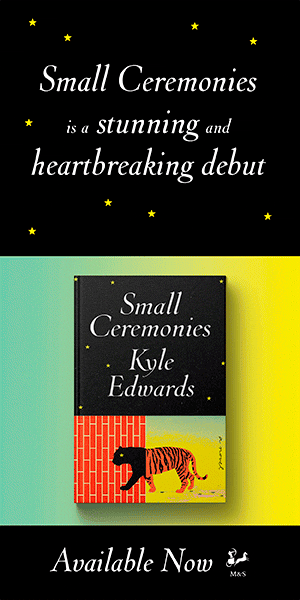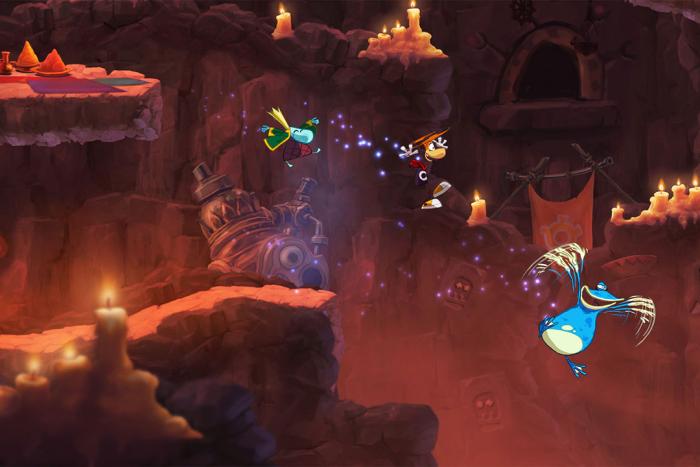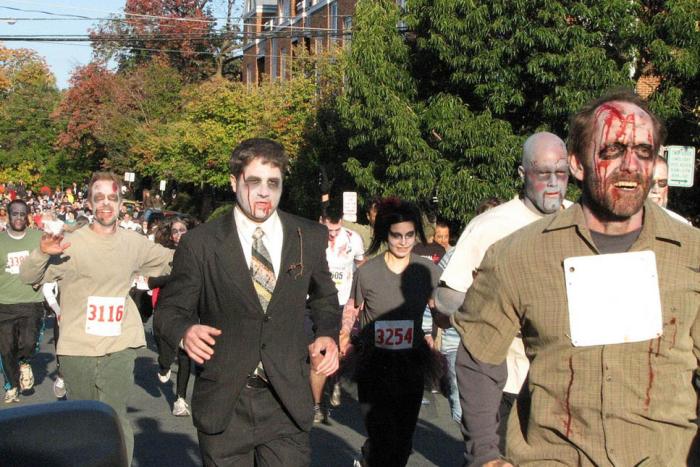Shelf Esteem is a weekly measure of the books on the shelves of writers, editors, and other word lovers. This week’s shelf belongs to Andrew Kaufman, author of All My Friends Are Superheroes, The Tiny Wife, The Waterproof Bible, and, coming this January, Born Weird. His bookshelf is in his Toronto office, the door of which reads “The Volcano City Detective Agency.” As told to Emily M. Keeler.
I should tell you, there are a lot of books on my shelf that I haven’t read. Which I think is true about everybody’s bookshelf. On the bottom are the big intellectual books, like The Instructions, and a lot of Murakami novels, that I want to read, but just can’t quite get to. Although I did read The Wind-Up Bird Chronicles, and I did like it. But once you read one of his books... it’s like all of his books are one big novel. But that one was good.
I organize the shelf in klumps. There are different projects. There’s a section for things I’m trying to rip off right now. And there’s a whole shelf for Wish I’d Dones. And then there’s César Aira. The guys down at Type Books got me into him, and he’s fantastic. His process is just riffing. The whole idea of writing a chapter a day and not going back. Do you believe that? Do you believe he really does that? If so, that’s horrible. That is not my experience of writing a book at all.
I have an area for reference books. One of them is about werewolves. There’s some Greek myth stuff, plus a dictionary of the Saints. I steal a lot from that book. The Saints are crazy motherfuckers. The whole lion thing in The Tiny Wife is half stolen from The Lives of the Saints. And then my Thesaurus. And Plotto. I love this book. It’s just plots. There are literally equations for making a plot. Like, misfortune leading into a miss-thinking judgments, then revenge, which sets up something else. I have always wanted to use this book to write a story, but I haven’t. It seems like a lot of work, when really you could just make shit up.
There are two really dangerous bookstores in town now. One is The Monkey’s Paw, and the other is a design and advertising bookstore, Swipe. I love design, I have this great book of gothic German fonts I got there. My love for design is totally based on my mid ‘90s Kinko’s experience. Literal cut and paste. I used to do a zine called Scruffy, and I just loved it. I loved that fucked up photocopier stuff. But then I also love it when they’re really well done. Really good design sells everything. Someday I want to write a book where they don’t have to make the margins so big. People are on to white space now. They’re not fooled anymore.
Speaking of design, Jennifer Egan’s A Visit from the Goon Squad was just incredible. It had a power point chapter, and it was motivated, it had an authentic emotional moment. It wasn’t gimmicky at all. That’s impressive. Although that whole book suffers from being a little too impressive. Like, “Here’s my New Yorker in the late ‘70s story, here’s my”—every single one was so spot on. Very impressive. Very, very impressive.
Next to Egan I’ve got my Tim O’Brien books. I worked with Tim O’Brien at the Humber School for writers. One of my favourite ever writer moments was with him. At one point I got really messed up by the end of a relationship, and I was working on a book that was never published. But it kind of ruined my mind, and I went a little crazy and the woman I was living with left me. So I went on a pilgrimage to see Tim O’Brien in Boston, and his address was in the phone book. I just showed up at his door. He was really good about it. He let me in, we sat down, started talking about it. We had a really good chat. We were on, like, our third cups of coffee. He was standing in the middle of the kitchen. He was pouring another cup of coffee, and he had a smoke going, so he set his smoke down on the edge of the sink. And just as he started pouring the coffee I said, “How do you not get obsessed, how do you not totally lose yourself in it when you’re working on a book?” And he stopped cold. He put down the coffee pot, and he lit a smoke. And he said, “I don’t think you can.” So he’s got a smoke in his hand, and another smoke on the sink, still smoldering, saying, “I don’t think you can.”
It was so great. He’s an amazing writer. And an American. There are a lot of Americans on my shelf. I’m trying to think of where the Canadians are. There’s Sheila Heti, and Derek McCormack, and Miriam Toews.
Looking at them now, lots of these books are depressing. Very few of them are boring—that would be inexcusable. And not too many of them are realist books. I’m not a huge fan of realism; for me, it doesn’t convey what it’s like to be alive. It can convey some things, I guess, like the facts of the time. But not what it’s like to really be alive.


